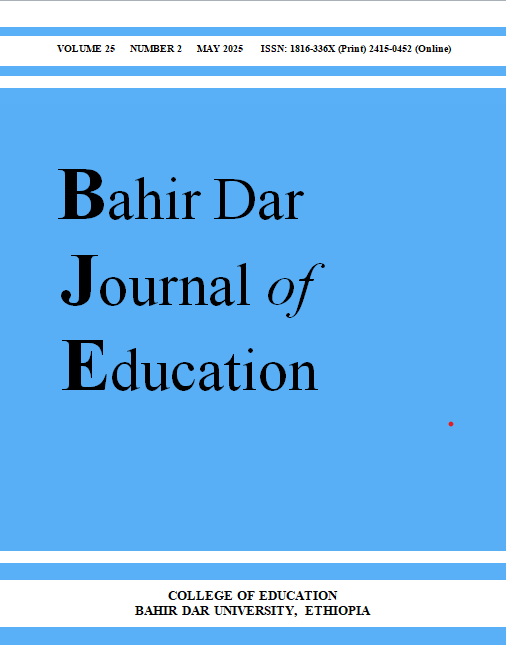Main Article Content
Exploring neoliberal influences on higher education curriculum reform: Insights from Bahir Dar University, Ethiopia
Abstract
This study explores the influence of neoliberal policy agendas on curriculum reform at Bahir Dar University, Ethiopia. Using Legitimation Code Theory, it examines how the neoliberal policy agenda prioritizes vocational knowledge and job-oriented skills, often marginalizing critical thinking and holistic learning. Through a qualitative case study approach, the research analyzed higher education policy documents, Bahir Dar University’s strategic plan, and interview data. Purposive sampling was employed to select nine experienced academics as study participants, and data were analyzed using thematic analysis. Results revealed a significant shift toward vocational knowledge and increasing disparities, both of which reflect the influence of neoliberal policies. The study recommends re-evaluating curriculum reform to ensure that workforce preparation encompasses critical engagement, social equity, and civic responsibility. It calls for curriculum frameworks that integrate vocational knowledge with liberal arts and critical thinking to prepare students not only for professional success but also for lifelong personal and societal fulfillment.







